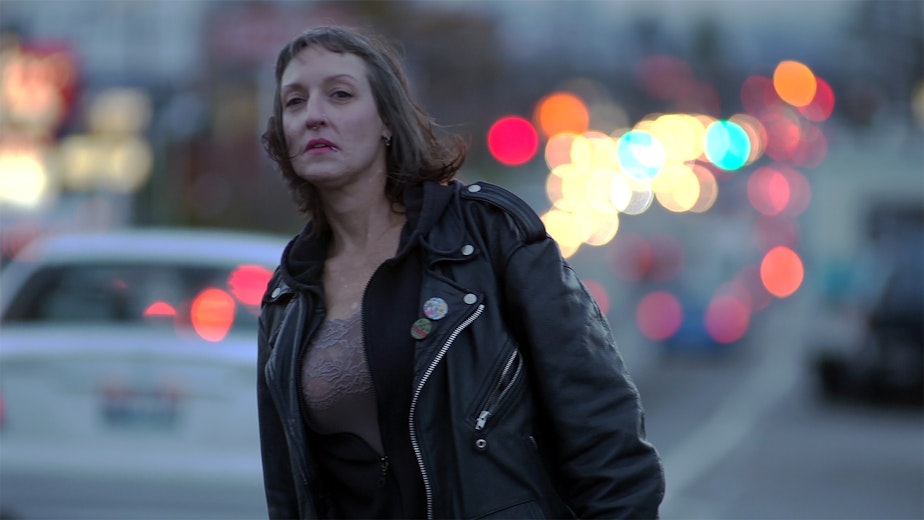Hear it again: 'Sweetheart Deal' – Inside sex work and addiction on Seattle's Aurora Avenue

In the documentary "Sweetheart Deal," co-directors Elisa Levine and Gabriel Miller follow four sex workers along Seattle's Aurora Avenue.
The film tells the stories of Tammy, Sara, Kristine, and Amy and their battles with drug addiction, dangerous circumstances, and a man called Laughn Elliot Doescher, the self-described “Mayor of Aurora.”
Content advisory: This involves discussion of sex work, drug use and overdoses, and sexual violence. This story also involves spoilers for the documentary "Sweetheart Deal."
This is a shortened re-airing of a previous Soundside story. You can find the original audio and story here.
Co-directors Elisa Levine and Gabriel Miller spent years working with sex workers on Aurora Avenue, recording their lives.
Earlier this year, their documentary, "Sweetheart Deal," premiered at the Seattle International Film Festival.
Sadly, co-director Miller passed away before the documentary's debut.
Sponsored
But Levine said the goal for both of them was always to "tell a relatable story — even for people who have never experienced anything like this with addiction. To provide a window into a reality that is kind of invisible, and is kind of hidden in plain sight."
The film includes a lot of difficult moments. But in the end, the featured women no longer work on Aurora and a sex offender is put behind bars.
Dr. Shireesha Dhanireddy, who sees patients working on Aurora, said that's not what typically plays out.
"I would say that there is a selection bias in the film just to be able to follow those women — to be able to reach them, to be able to know where they are. That doesn't happen for everyone."
Dhanireddy is the co-founder of the S.H.E Clinic, which stands for Safe, Healthy and Empowered. The clinic is a collaboration between the Aurora Commons and Harborview Medical Center, which aims "to provide kind, quality, non-judgmental health care to women on Aurora Avenue."
Sponsored
Dhanireddy said that since the documentary was filmed, there's been an increase in the number of sex workers on Aurora, in part because of legal changes that forced online spaces like Backpage or Craigslist to stop posting personal ads. That moved a lot of sex workers to the streets.
Dhanireddy also noted stark differences between the sex positivity movement and what happens on Aurora.
"When we think about the women on Aurora, this is your survival sex," Dhanireddy said. "This is exchange sex, this is sex for obtaining a place to stay, or heroin, or meth, or whatever it is that they need in that moment. It's not about making a profit. And some would say that this is not a choice."
But both Dhanireddy and director Elisa Levine have something in common: They want people to remember that the sex workers who live and work on Aurora are human beings.
"One of the things that we hear a lot is that people feel invisible," Dhanireddy said. "That being homeless robs them of that dignity of being seen and heard. And I think it's really important in our community to recognize that these are all our neighbors."
Sponsored
"Sweetheart Deal" is not currently available on streaming services, but will be airing at upcoming film festivals. You can find information about those airings at this link.





